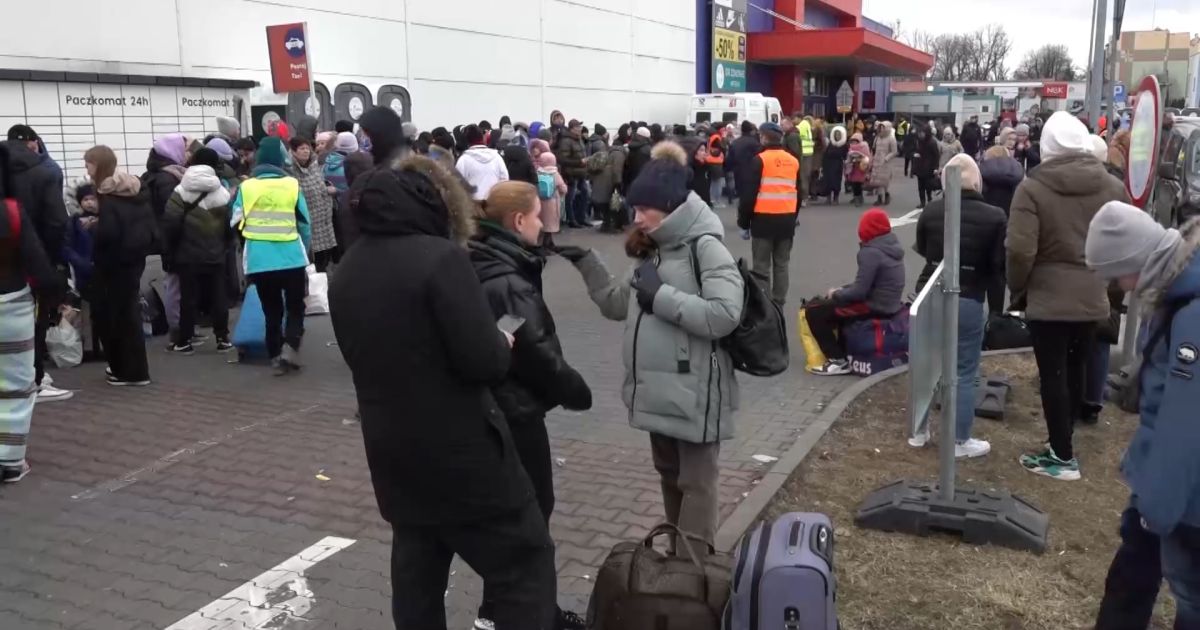Central and Eastern European countries are taking in millions of Ukrainian refugees fleeing the Russian war on their country and those who are culturally close, and consider them a potential skilled labor force, but analysts warn that it will be difficult to integrate them all.
Romania, Hungary, Moldova and Bulgaria are countries that, since the end of the communist era in 1989, have been accustomed to the departure of their residents instead of receiving newcomers.
Even if labor shortages, combined with the robust growth of some of these countries, have already required in recent years to bring many Ukrainian workers to construction sites or assembly lines, the numbers they have been facing since the start of the Russian invasion pose a challenge.
More than 2.5 million Ukrainian civilians have fled the battles and bombings launched by Moscow since last February 24, primarily towards the countries of this region that are facing the fastest population flight in the world, according to the United Nations.
Petkov: mostly Slavs and Orthodox Christians
Although more than half of this number is in Poland;
Tens of thousands more have gone to Moldova and Bulgaria, two of the countries with the fastest rates of population decline.
"Those who are now arriving on EU territory are qualified and meet the demands of the labor market," said Sieglind Rosenberger of the University of Vienna, but cautioned that welcome steps could change.
Sofia employers stated that their arrival was an opportunity to seize.
In a letter to the government, they indicated that Ukrainians could fill up to 200,000 vacancies in the areas of information technology, hotels, construction and textiles.
Bulgarian Prime Minister Kirill Petkov noted in particular that most of these newcomers are Slavs and Orthodox Christians and use the Cyrillic alphabet, stressing that they are "smart, educated and possess high skills."
"They are Europeans, so we are ready to welcome them," said the liberal Petkov, counting on their rapid integration.
Employers particularly target the large Bulgarian minority in Ukraine.
Bulgaria - a country of 6.5 million people that is the poorest in the European Union and not yet on the front line - has registered the arrival of about 20,000 Ukrainian refugees, a number that could rise if the Russians capture the Black Sea city of Odessa.
Bulgaria's population has fallen from nearly 9 million at the time of the fall of communism to 6.5 million today, partly due to immigration.
Bulgaria is keen to show more welcome to refugees, similar to Hungary, which since 2015 has adopted a zero-tolerance policy for illegal immigrants crossing its borders with Serbia and coming from the Near and Middle East.
Those we help and those we arrest
"We can see the difference: who is an immigrant, who comes from the south (...) and who is a refugee," said Hungarian nationalist Prime Minister Viktor Orban.
"Refugees can get all the help," Orban added, in the middle of an election campaign for a fourth consecutive term on April 3.
"The immigrants who come from the south, we arrest them. Those refugees are entitled to all our help," Orban told reporters last week, also referring to cultural proximity, as there is a Hungarian minority there in Ukraine.
However, it is not certain that all who cross the border will want to stay.
Even if these countries are economically prosperous, their lag compared to the more developed countries of Western Europe is still a bad thing.
There are also other insurmountable obstacles;
Most of the refugees are elderly, single mothers and children who cannot be employed immediately.
Another question is whether the Ukrainians will decide to stay;
Large numbers of arrivals are moving to other countries in Europe where they may have relatives or have better opportunities.
merging problems
Other experts question the ability of Eastern Europe - which has a lower GDP than its counterparts in the West - to bear the burden of such an influx of migrants.
Recognizing the burden, some countries have called for more aid.
However, other countries where large numbers of refugees decide to stay, such as Poland, may become overburdened because many of the refugees are children and elderly and therefore unable to work.
"How are these large numbers going to be integrated across Europe? There will be a problem," Brad Blitz of University College London told AFP.
He saw that the "explosion point" had not yet come.
In this context, Moldova, located between Ukraine and Romania, with a population of 2.6 million, has called for urgent assistance to nearly 100,000 refugees.
"We will need help to address this influx of refugees, and we need it quickly," Moldovan Ministers Natalia Gavrilita told US Secretary of State Anthony Blinken during a visit last week.
For his part, a researcher at the Center for the European Stability Initiative, Gerald Knaus, said that the European Union must now prepare to transfer hundreds of thousands of people within the bloc.
"It (the union) will not work within strict quotas; it will depend on political support and the words of political leaders, 'We will move forward'," he told AFP, but that the crisis, in his opinion, could turn into "one of the great moments that unite Europeans around a humanitarian issue."
Governments that had sought to restrict immigration, Rosenberger said, have now changed position quickly amid popular sympathy with Ukraine, but that welcome may not last forever when "poorer, less qualified people arrive, as expected after a few months."

